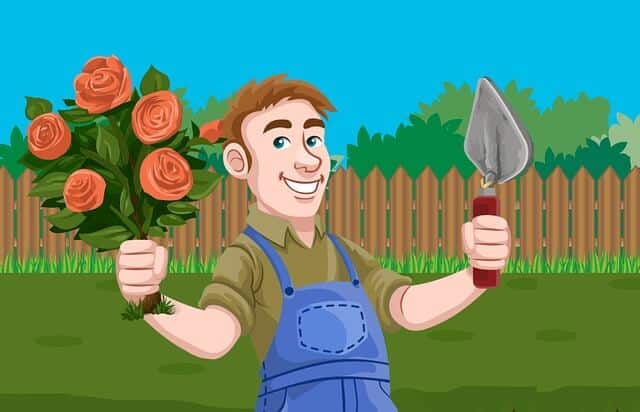Gardening can be an enjoyable and fulfilling hobby to have. It keeps you engaged, and you produce plants that benefit the environment. A garden or farm can also be a source of personal food or income. Some people enjoy eating their home-grown vegetables; if they have excess, they sell it to others or stores to make money on the side.
Proper farming tools are crucial as they make the work easier and more efficient. They save you the cost of doing the job multiple times and ensure a bigger yield.
Farming tools are grouped based on their functions. The size of the farm or garden will also determine the type of tools used. Industrial farming requires modern tools and machines.
1. Maintaining Wire Fencing
It’s essential to have a fence around your farm or garden. It’s a versatile structure that helps keep out intruders, both animals and humans, that can cause harm to your crops. It can also be used to mark the boundary of your farmland, which may be required by the state. If you choose to install the fence yourself, you need the right tools to do the job.
As referenced by Maunindustries.com, fencing pliers can be used for creating wire loops and tensioning fencing wire for repair and maintenance. You would also need a digger to create the holes in the ground that the spikes go into.
2. Digging Tools
Preparing the land is a vital step in crop production. It involves getting the patch of land ready for planting to make it easier for crops to grow. Various farming tools, such as shovels, spades, plows, and diggers, are used in land preparation. These tools help break up the hard sections of the soil and make them softer, which is necessary for plants to grow. The soil must be porous so that plant roots can easily penetrate and grow without obstacles.
A well-prepared land enables farmers to plant crops successfully and have a better yield. Hence, investing time and effort in preparing the land before planting crops is essential.
3. Planting Tools
Planting requires tools like hand forks, trowels, hoes, and planters. These farming tools play an essential role in the planting process as they help place the seeds in the soil and cover them. One can opt for manual planting using these tools or a mechanical planter, which distributes seeds over a large area when pushed.
4. Watering Tools
You may need some tools to keep your plants hydrated. These tools can include things like watering cans, sprinklers, and hoses. They all serve the purpose of providing water to your plants, which is crucial for their survival. It’s essential to ensure you water your plants regularly, as they need moisture to thrive. These tools can help you maintain the proper humidity level for your plants.
If your water source is far from your plants, you can use a watering can to transport water over long distances. Additionally, you can install underground sprinklers to assist with the irrigation process. Remember to use these tools wisely and in a way that benefits your plants.
5. Tools for Manure and Pest Control
Various tools for manure and pest control are necessary to maintain healthy plant growth. Sprayers are indispensable for spraying insecticides and pesticides, as pests can damage crops significantly.
Manure spreaders aid in applying fertilizers and manure, providing additional nutrients to the soil for optimal crop growth. Hand trowels, on the other hand, are useful for breaking up soil around plants and applying manure or fertilizer.
6. Harvesting Tools
During the final stage of crop growth, various tools such as hoes, sickles, harvesters, and conveyor belts are employed for harvesting. These tools aid in removing fruits or grains, which are then processed and prepared for proper storage. The threshing process, which separates the grains from the chaff, can be carried out using a thresher.
7. The Odd Tools
Certain items are crucial for the success of farming, and they do not belong to a specific category but serve important purposes. These tools are essential to keep the farm in top condition. They include:
- Gloves to protect the hands from thorns and other sharp objects.
- Axes and cutlasses for cutting down trees and plant stalks.
- Rakes for gathering dry leaves.
- Measuring tapes for taking accurate measurements.
- Farm boots to keep feet safe while working on the farm.
- Ladders for accessing high places.
These items may seem insignificant, but they are vital for productive farming.
Essential Farming Tools
Enhance your backyard farming toolkit with the addition of chicken coops. Chicken coops provide a safe and structured environment for raising poultry, contributing to sustainable living by supplying fresh eggs and natural pest control. Integrating chicken coops into your home farming setup boosts productivity and adds a charming, rustic aesthetic to your outdoor space.
Conclusion
Farming provides many benefits, such as producing food for people, creating jobs, and sustaining local economies. It is essential to have all the necessary tools for farming, such as tractors, plows, and irrigation systems, to maximize productivity and efficiency.
With the right tools, farmers can cultivate crops and raise livestock more efficiently and effectively, increasing yields and profits. Investing in farming tools benefits individual farmers and contributes to the larger goal of providing food security for communities around the world.
